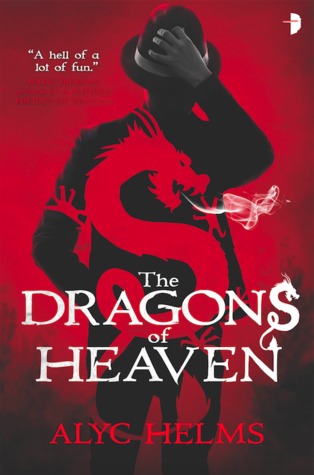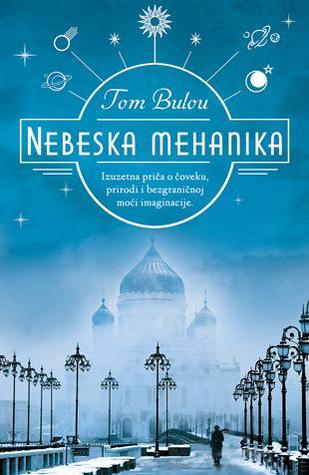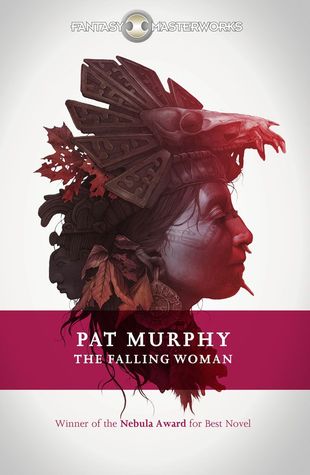So, last week, the EU caused massive outrage in the UK with plans to prevent vaccines produced in the EU from entering Northern Ireland. How did we get here? Is the EU being evil, or reasonable? Who are the bad guys and the good guys in all this mess. Unsurprisingly, I have opinions.
Let's start with the obvious:
The UK government has been consistently terrible at managing the pandemic and public health, but highly effective at securing a supply of vaccines. The death rate in the UK has put it on a par with Brazil, USA, and Russia in terms of mismanaged pandemic response policies.
The EU has been terrible at securing a supply of vaccines, while all its member countries have handled the pandemic differently, some better than others (and with variable effectiveness at different times).
How did we get here?
Back in early 2020, when it became clear that Covid-19 was going to be a global pandemic, research labs started working on vaccines. The EU offered the UK to join a purchasing scheme. The UK government was not interested.
The sequence of events after that is not quite clear to me. There was some media outrage (among Remainers and left-leaning media) when it was discovered that the UK had refused to join the EU purchasing scheme, and the pandemic hit the UK hard (much harder than the government admitted to, at the time). Soon, the UK government announced contracts with several pharma companies. What is unclear is: was the UK already negotiating as soon as it snubbed the EU, or did the media outrage prompt the UK government to negotiate quickly?
Either way, the UK (and US, and Israel) pre-ordered vaccines in a spending spree. The governments decided to buy their way out of the crisis, applying a massive dose of what they now, in hypocritical outrage, call "vaccine nationalism": a me-first attitude, trying to ensure that they would get vaccines before any other country.
The EU, meanwhile, took longer. EU member states, including the wealthiest ones, decided to buy together and distribute the vaccines equitably within the block. Which is not to say that there was no "vaccine nationalism" - it was just "vaccine supranationalism": While Portugal, Greece, or Romania might not be near the front of the queue for vaccines if they had to compete with Germany and France, the EU as a whole has of course been able to place itself ahead of Africa, Latin America, and less wealthy nations all over the globe. So while European solidarity was part of the EU decisions, it was strictly an internal solidarity. (I am disregarding the token Covax scheme, which is barely a fig leaf for all the richest nations' "me-first"-attitudes).
Admittedly, it is the EU, and US, and UK (as well as Russia, China, etc.) who funded much of the Covid vaccine research. EU subsidies helped build vaccine factories in the past. So being near the front of the vaccine distribution queue is somewhat justified.
Be that as it may: now, in 2021, we get a glimpse of how Brexit and "vaccine nationalism" went on behind the scenes:
- The UK, EU and USA signed firm commitments for many times their own populations with various vaccine manufacturers.
- The UK apparently stipulated in its contracts (at least with AstraZeneca) that UK vaccine deliveries had to be fulfilled before any other nations' orders. (So, what was all that outrage over "vaccine nationalism" about? No one aside from Trump has been more "vaccine nationalist" than BoJo's government.)
- The EU negotiated set delivery amounts following vaccine approval in specific timeframes (as opposed to spelling out that their orders had to be fulfilled before any others)
- The EU signed contracts which clearly defined that, for the purposes of vaccine production, UK facilities were to be counted among EU production facilities by pharma manufacturers.
- The EU bought its vaccines "at cost" - manufacturers committed to not making a profit (or loss).
- It seems plausible that the UK might be paying a premium to ensure it gets vaccines delivered first.
As we see with the AstraZeneca debacle, some of the contracts could only work if everything went to plan. Could AstraZeneca deliver the EU orders using just the Belgian and Dutch facilities? If there had been no problems, maybe. But AstraZeneca did sign contracts committing the UK plants to be producing vaccines for two competing markets - so both the UK and the EU can point at their contracts and demand output of those factories, now that there is a shortfall compared to AZ's promises and predictions. The fact that AstraZeneca is prioritising its commitments to the UK over its commitments to the EU could have various reasons: the political leanings of the managers, a fear that the UK would block exports anyway, or perhaps they earn more money per dose from the UK purchase compared to the EU purchase.
So who are the villains of the piece?
The UK, whose Brexiteer government put vaccine nationalism on the agenda in Europe and decided to outcompete the EU with all the maturity of someone yelling "shotgun" when a bunch of "friends" are about to get into a car? Who now tap into nationalist brouhaha with their "hands off our jabs" rhetoric?
The EU, who failed to react swiftly once Britain turned vaccine pre-ordering into a race, and who kept purse strings foolishly tight during negotiations? Who are trying to enforce their contract by any means they can think of?
AstraZeneca, who signed contracts with competing entities promising things it turned out to be unable to deliver, and who then decided to let only one of the partners suffer the entire shortfall, rather than distributing the burden of the shortfall across all their contracts evenly?
Well, obviously the latter, but neither the EU nor the UK come out of this debacle looking good.
Anyone who knows me knows that I have a very low opinion of BoJo. So, at this point, I'd like to mention one of the big factors in the EU's failure:
Ursula von der Leyen
Before she became the president of the European Commission, von der Leyen was a politician in Germany. When Germany managed to shunt her into Europe, I was dismayed. Liberal media might celebrate "the first woman president of the EU", and her academic pedigree might have seemed impressive: she was also a physician who had previously studied economics at the London School of Economics. On paper, that all sounded good.
On paper.
What people outside Germany don't realise is just what an inept manager von der Leyen is. (She is also one of the many politicians in the German-speaking world whose academic pedigree has come under attack for plagiarism in her doctoral dissertation)
The things I mostly remember about her is her mismanagement of her role as defence minister. Two particular scandals stand out:
- The Berateraffäre: Under her management, the German armed forces spent huge amounts of money on consultants. Contracts for consultants were awarded without following due process and it is alleged that favouritism played a large role. The pay received by consultants was truly exorbitant - even for consultants. In other words, it is alleged that money was funnelled from the (chronically underfunded) German military to consultancies, and specifically, to friends and acquaintances of the people awarding the contracts. Von der Leyen's knowledge of and involvement in this is unclear - she arranged for the data on her mobile phone to be irretrievably erased when the public inquiry demanded it be handed over for investigation, while other information was blackened out in paper files (despite this being prohibited for those specific files).
- The Gorch Fock: the Gorch Fock is a ship used for training purposes by the German navy. In 2015, it was sent for repairs, with the refurbishments of the ship estimated to cost 10 million Euros. Under von der Leyen's management, the repairs were continued as costs increased and increased. The latest estimate is 135 million Euros (the repairs are not yet complete, as far as I know), and, unsurprisingly. there are allegations that one of the factors driving the costs up is corruption and money being funneled to individuals who are enriching themselves.
Now, 135 million Euros does not sound much for a ship run by the navy, does it? All that high-tech equipment, those modern weapons, even a training ship is expensive...
This is the Gorch Fock (in 1980):
Along with the BER airport, DB's punctuality record, the Stuttgart railway station and the Diesel-scandal, the Gorch Fock is one of those scandals that remind Germans that the national reputation for efficiency, engineering, hard work, and honesty is, in the end, good PR, but not necessarily something with substance behind it. It is a fragile reputation indeed.
So perhaps it is those past scandals that led von der Leyen to negotiate for vaccines like Ebeneezer Scrooge buying coal to heat the office of his employees. Perhaps, conscious of her new role on the world stage, she wanted a fresh start, and tried to pre-empt any accusations of waste and corruption by being miserly with the vaccine contracts. This, with the benefit of hindsight, turned out to be a massive mistake.
The EU ordered late.
The EU ordered much greater quantities of the cheapest vaccines, and smaller quantities of the expensive ones. It turned out that the expensive ones were ready first, and more effective. It also turned out that the pandemic did return, forcefully, in winter, and that the first wave was not the end of it.
The EU ordered vaccines and stipulated they had to be delivered at cost. Reasonable, given that much of the research was funded by the EU, but not exactly an incentive for the companies to prioritise the European orders when other nations are willing to pay premium rates in the hopes of patching up their economies quickly.
With Biontech/Pfizer and AstraZeneca being behind on their schedules, and the latter making it clear that it would prioritise the UK over the EU, von der Leyen is now fighting for her political life. Putting pressure on AstraZeneca, launching raids on their factories, contemplating partial suspension of NI protocols... these are all desperate menoeuvres by an inept manager trying to save her bacon.
I believe that Germany and other European nations were absolutely right to opt for a joint purchase of vaccines, and that European solidarity was the right ideal to follow. In the era of autocrats and nationalism, Europe was always going to have to compete with the USA, with Russia, with China - there is no love lost between different blocks. But ordering together at least meant that Romania does not have to compete with Germany, that at least some human solidarity is part of the purchasing process. I also think that BoJo's vaccine nationalism was pretty deplorable, and British ministers crying foul now are hypocritical beyond belief. The UK took out its knives, and should not fake surprise that the EU is now trying to play hardball, too. (Yay for mixed metaphors).
Unfortunately, von der Leyen f***ed up the vaccine orders, and BoJo's "buying his way out of trouble" approach turned out to have some rewards. Never mind that 100,000 Brits died because he f***ed up everything else.
Who are the villains of the piece? The lot of them. The UK government, von der Leyen, AstraZeneca's managers, Trump, Russia, China... the only heroes are the healthcare workers and the scientists who developed the vaccines, and maybe the Prime Minister of New Zealand.












